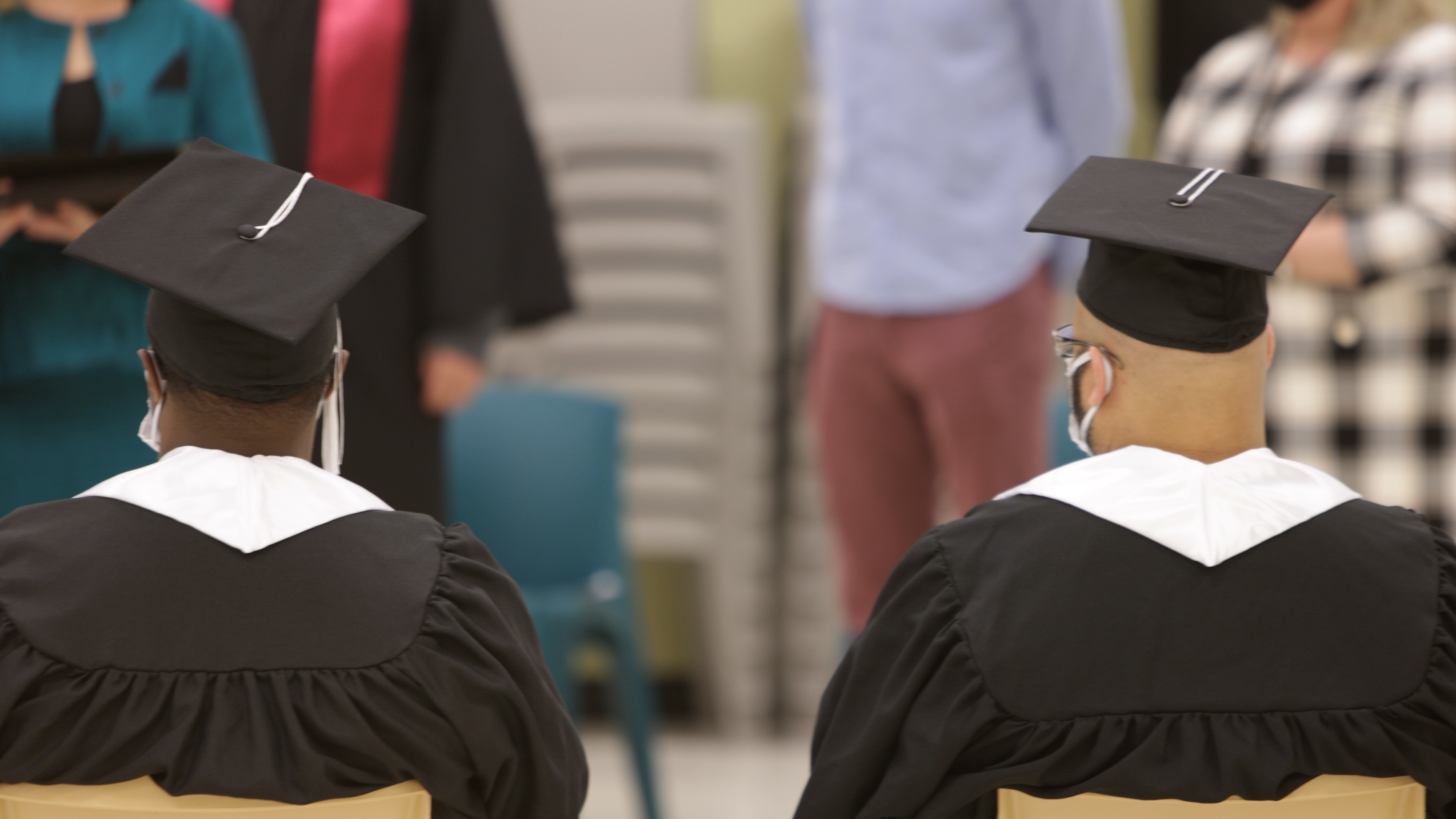
April is Second Chance Month. To help others better understand how important second chances are to justice-involved individuals, we asked CoreCivic staff why they believe second chances are needed to support those in our care and positively impact society. Residents at CoreCivic have also provided feedback on how reentry programming has helped place them on paths leading to second chances.
Note: Submissions have been edited for clarity and length.
"The meaning of a second chance to me is that even though a person may have made bad decisions or choices early in their life, [those choices] should not hold them back from any type of advancements. As a person matures, they learn to make better choices for the future, or learn from the mistakes that they have made in the past to do better and not continue down the same destructive path."
Michelle Menzer
Recreation Supervisor
Houston Processing Center, Texas
“Education is the most important skill you can obtain while incarcerated; it gives you the power to advance yourself while proving to others that you can change for the better. I hope that I can give back to society upon release, and stay focused on being a better me.”
George
2021 Persevere Coding Program graduate
Trousdale Turner Correctional Center, Tennessee
"'If at first you don't succeed, dust yourself off and try again' is a phrase I heard growing up. Add a criminal conviction and/or prison time to your resume, and trying again is more difficult. In corrections, we have the opportunity to invest time and resources in the future of residents who complete their sentencing and reenter society. Through education, counseling, and other programs offered, residents are able to leave prison with vital records, an established trade or degree, and oftentimes, a job waiting for them. This is their second chance. I'm proud to be a part of a team that encourages second chances regardless of backgrounds. Mistakes are made, but one mistake shouldn't define who we are as an individual."
Catherine Hayes
Records Clerk
Wheeler Correctional Facility, Georgia
“We are extremely fortunate to be receiving this education [through the Persevere coding program] and making the best possible use of our time. This is going to impact not only our lives but the lives of our families and society as a whole. This is the start of a new and improved rehabilitation process.”
Jorge
2021 Persevere Coding Program participant
Red Rock Correctional Center, Arizona
"As an addiction specialist, second chances are very special in my field. Second chances for those with substance use disorders give them a chance to possibly get their lives back. For someone living with substance use disorders and being incarcerated, second chances are a welcome gift to start over on both fronts."
Steven Valdez
Treatment Coordinator
Bent County Correctional Facility, Colorado
“2016 was the year that I decided to change my life and work toward my associate degree. I felt ashamed that I didn’t have the courage to stand up and do what was right in the past, which ultimately motivated me to work toward a college degree. I wanted to become someone my three children can be proud of and look up to–that is all the motivation I needed to enroll in college and pursue my degree. For someone who used to never learn from his own mistakes, graduating with distinction is a huge accomplishment for me. The education that I received helped me change my thinking process, made me a better listener, and opened my mind. It also taught me empathy, compassion, and how to communicate effectively. These are the important lessons that I have learned, and ones that I will apply outside (prison). It’s something that can never be taken away from me.”
Gregory
A 2021 college graduate who earned two associate degrees in arts and general studies from Rio Salado Community College in Arizona
Saguaro Correctional Center, Arizona
"Second Chance Month is important because it raises awareness about extending second chances to people with a criminal history by removing the unnecessary barriers that hinder their success. To me, Second Chance Month gives the residents of our program and many others like them, dignity, hope, and a sense of pride by allowing them to achieve their potential. It shows them that although they have made mistakes, they deserve a second chance, and their past does not have to dictate their future."
Linda Bryant
Facility Director
South Raleigh Reentry Center, North Carolina
“I have always wanted to have an education. Now that I have my High School Equivalency Certificate (HSE), I can go to college like I have always wanted to do. Earning my diploma motivates me because it tells me that I can do anything if I put my mind to it. I hope to go to college and complete my parole. I also want to speak to other troubled teens to let them know that life can be way better than what is now [for them]—they just have to put their minds to becoming better people.
Just because you are incarcerated doesn’t mean you get any less of an education than anyone else. Put your mind to it and better yourself for yourself. Don’t ever give up on yourself. Once you get your education, don’t stop there—always go beyond your expectations."
Joseph
2021 GED Graduate
Trousdale Turner Correctional Center, Tennessee
"Second chances mean we allow ourselves to forgive and be forgiven. We are all human, and we all deserve the right to allow ourselves and those dear to us to live a better life. Many of us in this world deserve the chance to learn and break the cycle. As correctional professionals, it is our job to assist in providing that opportunity to those who reside in our care."
Jessica Garcia
Quality Assurance Manager
Bent County Correctional Facility, Colorado
